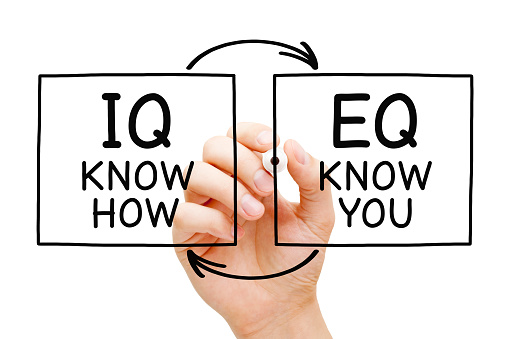Many people have heard of emotional intelligence but don’t fully understand what it is and the impact it can have on your life. Simply put, emotional intelligence (EI) is the ability to recognize, understand, and manage your emotions as well as those of other people. It enables you to better cope with stress and build strong relationships with others. Let’s take a closer look at this important concept.
What is Emotional Intelligence?
In essence, emotional intelligence involves understanding how emotions influence behavior, decision-making, and performance both in yourself and in other people. It encompasses four specific skills: self-awareness, self-management, social awareness, and relationship management. With high EI levels, you are better able to manage stress and difficult situations; have more successful relationships; make better decisions; increase problem-solving capabilities; become more empathetic; prioritize tasks; stay focused on goals; foster positive emotions in others; recognize the feelings of others before they do; be creative; boost communication skills; develop resilience to change; make sound judgments under pressure; show genuine interest in others’ ideas or opinions. Essentially, having a high level of EI can open up a world of opportunity that would otherwise remain untapped due to lack of knowledge or insight into human behavior. As such, improving your emotional intelligence can significantly enhance the quality of your life by enabling you to effectively deal with conflict resolution, communication issues, workplace challenges, marriage difficulties and more!

How Can I Improve My Emotional Intelligence?
The good news is that anyone can work on developing their own EI capabilities regardless of age or experience level. Here are some steps you can take today to start increasing your emotional intelligence: 1) Take time for self-reflection — taking time out for yourself can help you gain perspective on what truly matters in life
2) Monitor your thoughts — pay attention to how you think about things—your mental state will directly affect how you respond
3) Practice mindfulness — focusing on one task at a time helps improve focus
4) Seek feedback from others — getting feedback from trusted sources can help identify areas where improvement may be needed
5) Be open to change — embracing change helps foster growth
6) Read books/articles related to EI — knowledge is power!
7) Develop empathy — understanding how other people feel helps build stronger relationships
8) Set realistic goals — setting achievable goals gives direction
9) Exercise regularly — physical activity increases energy levels
10) Ask questions — asking questions encourages learning from those who have different experiences than you.
Emotional intelligence has a tremendous impact on the quality of our lives. By investing time into understanding ourselves better—our strengths and weaknesses—we can use this knowledge not only for personal growth but also for improving relationships with those around us. The key is recognizing that we all possess the capacity for greatness if we just take steps toward unlocking our potential! With practice comes progress – so don’t give up – keep striving for excellence!

 YOU to build the best version of yourself! Let me show you how—Follow me!
YOU to build the best version of yourself! Let me show you how—Follow me!






 HAPPY BIRTHDAY, ISAGENIX!
HAPPY BIRTHDAY, ISAGENIX! 

 A
A




 Save the Date!
Save the Date! 


 You can’t have it BOTH ways:
You can’t have it BOTH ways: 







Leave a Reply
You must be logged in to post a comment.